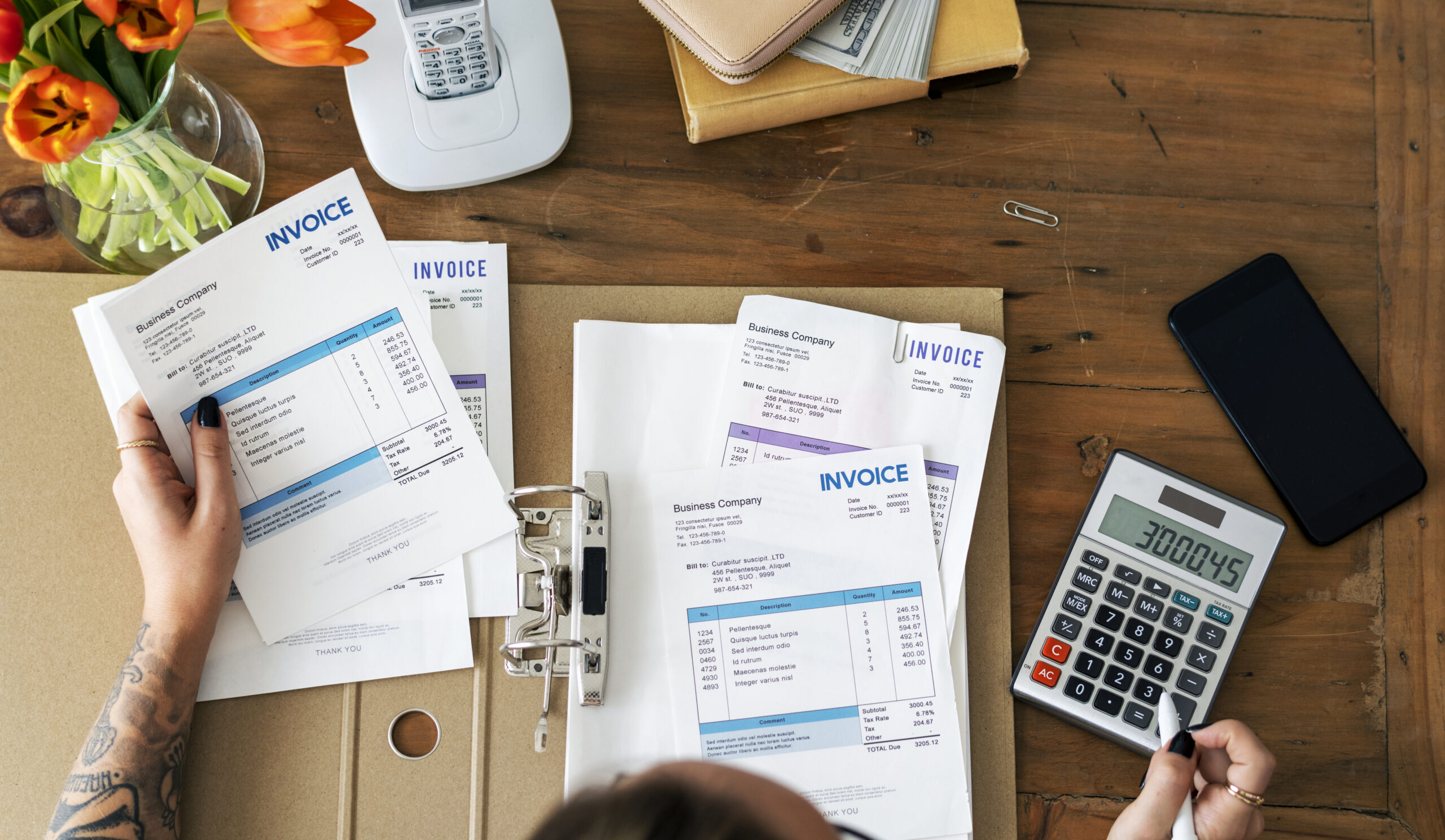A basic guide to invoicing
For businesses of all sizes throughout the UK, invoicing is a fundamental part of maintaining healthy cash flow and ensuring that services and products are paid for on time.
A clear and professional invoice not only helps in getting paid promptly but also ensures compliance with UK regulations. To help you to ensure that your invoices are in tip top shape, the Ellis & Co team has put together a brief guide to creating and managing invoices efficiently.
What should be included in an invoice?
To ensure your invoices are clear, professional, and legally compliant, they must include the following crucial elements:
Your business’ information
- Your business name, address, and contact details
- Include your company registration number (if you are a limited company) and VAT number.
Your customers’ information
- The full name and address of the client or customer being invoiced.
A unique Invoice Number
- Each invoice should have a unique reference number for your business’ tracking purposes. This is particularly important for bookkeeping and when dealing with any potential disputes.
An invoice date
- The date the invoice is issued to the client; this will allow them to track when payment is due.
A clear description of the goods or service you supplied/provided
- This should include dates, quantity or hours worked if applicable, as well as a clear description of what was provided.
The total amount due
- Relevant charges should be broken down for each product or service as follows:
- Net amount: The total cost before any taxes.
- VAT (if applicable): For VAT-registered businesses, the VAT amount should be clearly displayed.
- Gross Amount: The total amount including VAT.
Agreed payment terms
- You should include the payment terms that were previously agreed with your customer (e.g. 30 days from date of invoices), as well as details for any penalties for late payments.
Details on how to pay
- Of course, you will need to detail precisely how your customer can pay you; clearly outline your bank details.
Contact details
- Make it as easy as possible for your customer to contact your business should they have a query regarding an invoice.
Invoicing best practices
Aside from ensuring your invoice is accurately raised and sent to a client, here are a few tips on how to ensure you can maintain positive cash flow through invoicing best practice:
Send invoices promptly: Delayed invoicing can lead to delayed payments. Ensure invoices are sent out as soon as the service or product is delivered.
Use professional invoicing software: Your chosen accounting software can automate and streamline the invoicing process, including generating invoices, tracking payments and maintaining accurate records.
Follow up on overdue payments: Customer focused credit control is a must when it comes to invoicing.
Maintain accurate records: Keep copies of all invoices for your records, whether digital or paper. This will prove key for accounting purposes, not to mention when it comes to your self assessment tax returns.
Ultimately, invoicing is a vital part of running any business. By ensuring your invoices are clear, professional, and compliant with UK regulations, you will maintain good cash flow and build positive relationships with clients.
If you would like further guidance on your invoicing process or want recommendations on the best software for your invoicing requirements, speak to the experts here at Ellis & Co today by calling 01244 343 504 or emailing info@ellis-uk.com.





